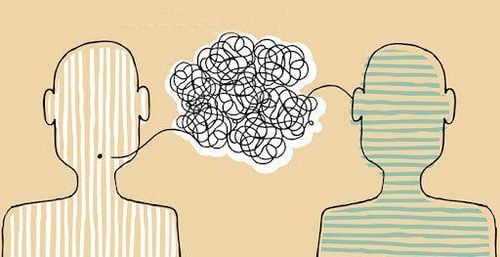This is an automatically translated article.
Today, beds as people hail meditation as a cure for anything that harms your health. But what is really going on in your brain when you meditate? Read the article below to understand more.1. Overview
You can't see or touch stress, but you can feel its impact on your mental and physical well-being. In the short term, stress increases your heart rate, breathing rate, and blood pressure. When you are constantly under stress, your adrenal glands overproduce the hormone cortisol. Overexposure to this hormone can affect the function of your brain, immune system, and other organs. Chronic stress can contribute to headaches, anxiety, depression, metabolic cardiovascular disease, and even premature death.While you can't get rid of stress at its root, you can minimize its impact on your body. One of the easiest and most workable stress reduction techniques is meditation, a program in which you focus your attention inward to induce a state of deep relaxation.
Although the practice of meditation is thousands of years old, research on its health benefits is relatively new and promising. A research review published in the January 2014 issue of JAMA Internal Medicine found that meditation is helpful in reducing anxiety, pain, and depression. For depression, meditation is as effective as an antidepressant.
Meditation is believed to work through acting on the sympathetic nervous system, increasing heart rate, breathing rate and blood pressure during times of stress.
2. What happens to your brain when you meditate?
2.1. Meditation develops different areas of your brain
Your brain develops through neural connections. Nerve cells process information in your brain, connecting to create neural pathways responsible for your thoughts, feelings, and actions.When you repeatedly do an activity, you strengthen the neural connections involved, which help develop related regions in your brain. The process is similar to when you meditate.
While studies on mindfulness meditation are still in their early stages, some small early studies have found that over time mindfulness meditation can lead to an increase in gray matter density in the hippocampus - brain regions important for memory and other frontal regions of the brain as well as an increase in lobe thickness in the anterior lobes
Increased gray matter and left hippocampus support learning, cognition and memory , leads to better event retention and more mindful behavior. And an increase in anterior cingulate and cortical thickness is beneficial for cognitive function, attention, and self-perception.
Over the past decade, researchers have found that if you focus your attention on your breath, your brain rewires itself to make it easier to focus. If you practice calm acceptance during meditation, you will develop a brain that is more resilient to stress. And if you meditate while cultivating feelings of love and compassion, your brain will develop in such a way that it feels more natural to connect with others.
Kristoffer Rhoads, a psychologist at Harborview Medical Center says:
If you look at the results 6 to 12 months after meditating for usually 20 to 30 minutes a day, you can see changes in the brain structure as well as changes in function.

Thiền được coi như một phương pháp chữa trị cho bất cứ điều gì gây hại cho sức khỏe của bạn
2.2. Calms the sympathetic nervous system
Another benefit of mindfulness meditation is that it can neutralize your sympathetic nervous system, or fight, response.When you face a threat, your sympathetic nervous system kicks in, releasing stress hormones that help you eliminate or combat stress. When the danger is over, your parasympathetic nervous system will activate and allow you to rest and relax.
According to Rhoads, through meditation, you are essentially deactivating the sympathetic nervous system and activating the parasympathetic branch. Early studies have found that over time this practice can help with pain, depression, stress, and anxiety. He also highlights how calming your sympathetic nervous system through meditation can reduce emotional responses.
By non-judgmentally noticing what happens to you during meditation and then letting it go, you can avoid triggering a fight-or-flight response when something negative comes into your mind. life.
2.3. Improve your attention
Research shows that meditation can help you improve your focus in two ways. First, it can help you focus better on something specific while ignoring distractions. Second, it can make you more likely to notice what's going on around you, giving you a more complete understanding of the present moment.Some of the most fascinating research on how meditation affects attention is being conducted by Antoine Lutz - PhD - an associate scientist at the Waisman Laboratory for Brain Imaging and Behavior at the University University of Wisconsin in Madison, in collaboration with Richard Davidson and the Laboratory of Emotions Neuroscience at the University of Wisconsin. Their work has shown that concentration meditation, in which a meditator focuses his or her attention completely on one thing, such as counting breaths or staring at an object, activates areas of the brain that are most important to the brain. important to control attention. This is true even for those new to meditation who have only had short-term training. Experienced meditators show even stronger activation in these regions. If meditation trains the brain's attention. But extremely experienced meditators (with more than 44,000 hours of meditation practice) showed less activation in these regions, despite their better performance on attentional tasks. The reason for this, in Lutz's view, is that the practice of meditation can ultimately help reduce your efforts to focus your attention. This shows that people can instantly boost focus by learning a simple meditation technique, and that practice makes even more progress.
To test whether meditation reduces unintentional blinking, participants had to notice two things happening in rapid succession, less than a second apart. Results published in the journal PLoS Biology revealed that the meditation training improved the participants' ability to notice both changes without sacrificing accuracy. EEG recordings - which track patterns of electrical activity in the brain, showing precise moment-by-moment fluctuations in brain activation - showed that the participants allocated less brain resources to their brains. the task of paying attention to each goal. In fact, meditators spend less mental energy paying attention to the first goal, which frees up mental bandwidth to realize what comes next. Attention becomes easier for the brain
Ultimately, Lutz and his colleagues believe that meditation can increase our control over our brain's limited resources . Especially for anyone who knows what it feels like to be distracted or overwhelmed, this is a compelling benefit. Although your attention is a limited resource, you can learn to do more with the mental energy you already have with meditation.

Thiền hơi thở có thể giúp bạn tăng khả năng tập trung
2.4. Reduce your stress
Research has also shown that meditation can help people with anxiety disorders. Philippe Goldin, director of the Clinically Applied Neuroscience project in the Department of Psychology at Stanford University, uses mindfulness meditation in his studies. The general practice is to be aware of the present moment — by paying attention to sounds, breathing, bodily sensations, thoughts, sensations, and observations without judgment and without trying to change what you are. found that.In his study, people took an 8-week mindfulness meditation course to reduce stress. They meet once a week in a class and practice on their own for up to an hour a day. The training includes mindfulness meditation, walking meditation, gentle and relaxing yoga with body awareness as well as a discussion of mindfulness in daily life.
Before and after the intervention, participants had their brains scanned inside an fMRI (or functional MRI) machine, which looks at brain activity, not brain structure. The fMRI scanner tracks which brain regions consume more energy during meditation and, therefore, which regions are more active.
Brain scans in Goldin's studies show a surprising pattern. After the mindfulness intervention, the participants had greater activity in brain networks involved in information processing when they reflected negative statements about themselves. In other words, they pay more attention to the negative claims than they did before the intervention. And yet, they also showed reduced activation in the amygdala, an area associated with stress and anxiety.
Goldin explains that the findings of mindfulness meditation teach people with anxiety how to process traumatic thoughts and emotions without being dominated by them. Most people dismiss unpleasant or obsessive thoughts about them. Brain scans show that people with anxiety are learning to witness negative thoughts without having to fully respond to anxiety. Research from other laboratories is confirming that mindfulness meditation can lead to lasting positive changes in the brain.

Thiền ngủ có thể giúp ích cho người bị rối loạn về giấc ngủ
2.5. Feel more compassionate
We often think of our emotional sphere as something fixed and unchanging — a reflection of the personality we were born with. But research is revealing the possibility that we can hone and increase our ability to feel an emotional state of compassion. Researchers have found that feeling connected to others can be learned just like any other skill.All meditators have different emotional responses to sounds. More experienced compassion meditators showed greater brain responses in areas important for processing physical sensations and emotional responses, especially to the sound of racing. The researchers also observed an increase in heart rate that corresponded to changes in the brain. These findings suggest that the meditators had a genuine empathic response and that the experienced meditators felt greater compassion. In other words, compassion meditation seems to make the brain more naturally open to connecting with others.
These meditation techniques can have benefits beyond the experience of spontaneous compassion. A study by psychology professor Barbara Fredrickson and her colleagues at the University of North Carolina, Chapel Hill, and the University of Michigan, found that a seven-week course of loving-kindness meditation also increased a person's daily experience participants about joy, gratitude and hope. The more people engage in meditation, the better they feel. Participants also reported a higher sense of self-acceptance, social support, purpose and life satisfaction, while experiencing fewer symptoms of illness and depression. This research provides strong evidence that removing the illusion of distance can open us up to a more meaningful connection to life.
While mindfulness meditation can cause amazing changes in your brain and outlook, it doesn't happen overnight and it's not a cure-all. Learning to let go of your expectations and simply experience meditation is hard work, but it's really important. The more you practice being in the moment without judgment or expectations, the better you will achieve it.
Please dial HOTLINE for more information or register for an appointment HERE. Download MyVinmec app to make appointments faster and to manage your bookings easily.
References: mindful.org, rightasrain.uwmedicine.org, health.harvard.edu












